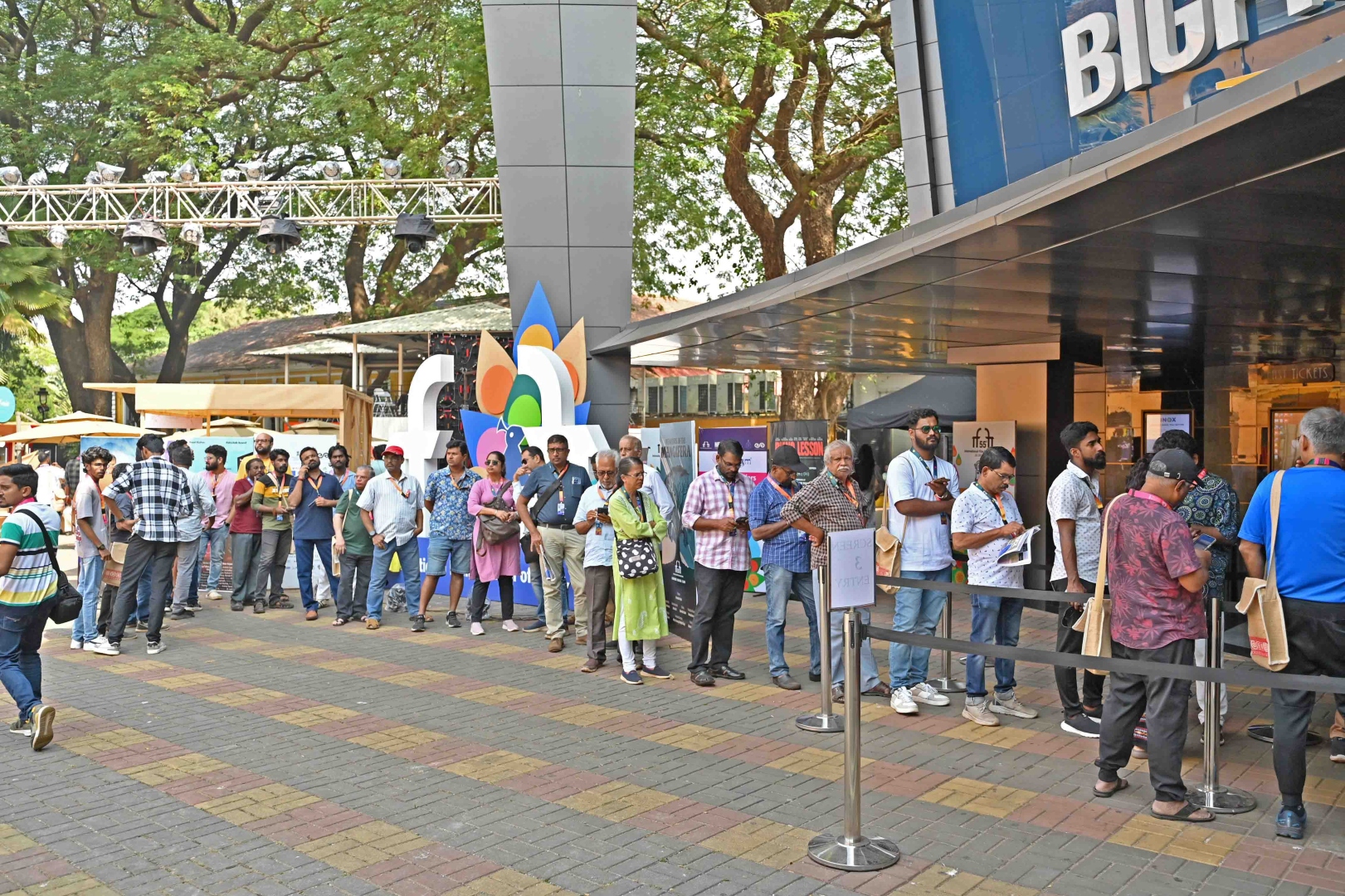
PANAJI
Panaji is getting ready for the nine-day International Film Festival of India (IFFI), which begins on 20 November. The 56th edition is around the corner, and delegate registrations are increasing every day. People of all ages are looking forward to it, whether they watch films regularly or not. IFFI always creates excitement in the city.
IFFI moved to Goa in 2004. That same year, Omkar Rege attended the festival for the first time when he turned 18. Since then, he has missed it only twice – once because he lacked money, and once because he lacked time. This year will be his 16th visit. He says his friends know that the last 10 days of November are always reserved for IFFI. He has many memories, including watching 71 films and 40 shorts in 11 days, emotional moments with filmmakers, and photos with cinematographers.
Screenwriter Rucha Prabhudesai says she dreamt of attending IFFI since childhood. She had to wait until she turned 18, but she enjoyed the festival atmosphere even earlier. Every year she and her friends visited the food stalls, rides and games around the venue. When she finally attended, she watched unforgettable films and went to masterclasses, such as the one by cinematographer Robert Yeoman. Her only disappointment was the disappearance of the food stalls.
Film editor Siddhesh Naik has been coming to IFFI since 2004. As an aspiring filmmaker, he remembers standing in queues and watching films from countries he had barely heard of. He says IFFI is a blessing for Goans, offering access to world cinema and talks by international filmmakers. For many young people who cannot afford film school or travel, IFFI becomes their classroom. He believes many young Goans have become confident and serious about filmmaking because of the festival.
He also feels Film Bazaar has been a game-changer. His experience with the Konkani film Juze showed him how important that space is for indie filmmakers, helping them connect with producers, distributors and festival programmers.
Theatre director and music designer Dr Saish Deshpande says IFFI has influenced his work by creating a dialogue between theatre and film. The selected films inspire writers and directors through their storytelling, rhythm and emotion. He says modern films’ layered sound design has raised expectations for theatre too, pushing sound designers to create richer experiences. Even acting techniques seen at IFFI influence theatre artists.
For screenplay writer Heramb Kirtany, IFFI is a yearly source of inspiration. Some days he watches up to six films, and though exhausting, he finds at least a few gems every year that stay with him.
Casting director and actor Alton Coutinho started attending IFFI in 2015. At first, he made Excel sheets and colour-coded his film plans. Later, he focused on workshops. In 2021, he was selected for Creative Minds of Tomorrow. He and his friend submitted their short film Ancessao to the Indian Panorama section, though it was not selected. Still, he plans to attend this year after a three-year break.
Actor Prashanti Talpankar says IFFI helped Goans understand the difference between commercial films and art cinema. It showed the importance of direction, concept, photography and acting. She believes IFFI encouraged local students to dream of making films, and a new group of Goan filmmakers emerged as a result.
Filmmaker Gopinath Chandelkar says IFFI is a great place to share culture and ideas. When low-budget films get nominated, it reminds filmmakers that honesty and hard work matter. Despite running a successful spice brand, he continues making short films.
For many viewers, IFFI is mainly about watching good films. It is an affordable way to experience diverse cinema and learn different filmmaking styles. Goa hosting the festival permanently gives Goans a rare advantage.
Film critic Jisha Ponnachan says IFFI provides access to films that are otherwise hard to find, especially indie films from other parts of India. It also allows easy interaction with filmmakers, actors and directors from across the country.
Still, many feel Goa needs stronger film culture. There is a shortage of trained artists, technicians, make-up artists, costume designers and sound professionals. People also say noisy events near theatres disturb screenings and should be avoided.
Actor-director Rajdeep Naik recalls the original goal behind bringing IFFI to Goa – to help Goans learn filmmaking and grow a local film industry. He now questions whether that goal has been achieved.